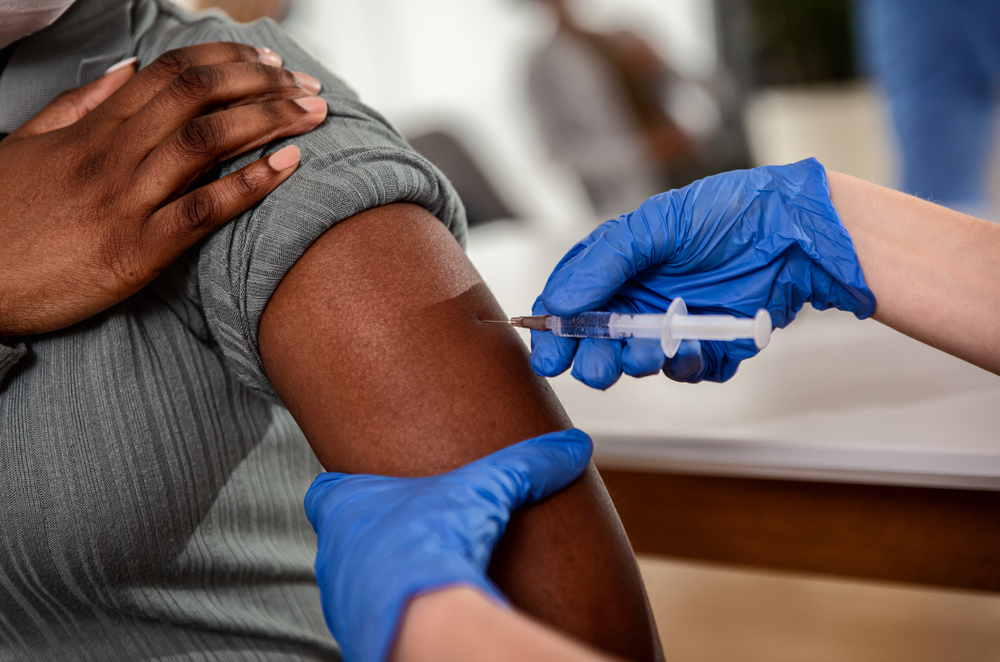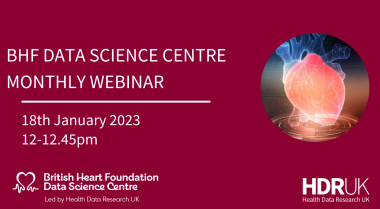Response to Public Administration and Constitutional Affairs Committee report, “Improving data transparency critical in long-term Covid-19 fight”
16 March 2021
As the national institute for health data science, Health Data Research UK (HDR UK) provides the following response to the Public Administration and Constitutional Affairs Committee’s report published today, (“Improving data transparency critical in long-term Covid-19 fight”), specifically with reference to the use of data by the UK’s health research sector.

Read the report summary from UK Parliament
Summary:
- The COVID-19 pandemic has illustrated very clearly that health data is an important resource; and how this resource is used by health researchers must be transparent to patients, practitioners and the public.
- Building trust with patients and the wider public is not only achieved through accurate communication of how health data is being used for research, but also through genuine involvement and engagement in access to and use of health data for research.
- The health research sector can continue to support policy makers to combat COVID-19 through continued and deeper collaboration – this will allow more health datasets to be made available, enabling further insights and recommendations that can save lives and allow the UK to more quickly overcome and recover from Covid-19.
1. Ensuring transparency in the use of health data for research
- HDR UK agrees with the overall sentiment of comments about transparency of health data, and how data are used, for what purpose and by whom.
- As an example, we would like to highlight how HDR UK’s reports to the Government’s Scientific Advisory Group for Emergencies (SAGE), have been open, published and accessible on our website from the outset of the pandemic.
- Through “Data and Connectivity” (one of the COVID-19 “National Core Studies”), all of the datasets made available for research into COVID-19 are listed with full descriptions on the HDR Innovation Gateway; providing researchers ability to request access to the datasets and anyone worldwide to view the nature and use of the data.
- Progress and impact of “Data and Connectivity” can be tracked on our website via our monthly reports and via the HDR UK Innovation Gateway
2. Building public trust in the use of health data
The report makes several conclusions and recommendations about the need to build public trust. As well as the accuracy of data communicated TO the public, HDR UK believes that building public trust is also predicated on a genuine and active programme of engagement and involvement WITH members of the public (including patients and patient groups) in how the data is used.
It is only by taking people on the journey from the outset and asking for their input, that institutions involved in the use of health data can earn, build and retain trust.
In the past year, HDR UK has engaged with over 20,000 patients and the public to inform its work in uniting, improving and using health data for research. We have fully integrated a programme of PPIE (Public Patient Involvement and Engagement) into our work on COVID-19, including:
- A rapid consultation to prioritise health data research questions on COVID-19 vaccines, with responses from over 800 people that has been invaluable in guiding the work of the National Core Studies
- Provided rapid input into the design of major interventions, including the acceptability of patient contact for recruitment to clinical trials
- Rapidly established a dedicated Patient and Public Involvement Group to guide our work on COVID-19 and COVID-19 research projects from the outset
- Seeking input from the Group around the data access process to ensure it not only builds understanding amongst the public but also, where possible, improves the process to address any key questions or concerns from a public perspective
- Ensuring the group inform, shape and influence key documents, activities and decision making, including the fortnightly report to SAGE and the National Core Studies weekly delivery group meetings
Further information about how HDR UK works with on patients and members of the public to inform our work can be found on our website:
Patient and public voice in the COVID-19 response
Patient and public voice in the National Core Studies
3. Collaboration and a sector-wide response
The success of the health research community in responding to the Covid-19 pandemic has been in large part due to widespread collaboration between numerous, diverse organisations across the sector; that has allowed rapid availability of and secure access to relevant datasets across all four UK nations.
Large-scale research projects have been established in a matter of weeks and new systems have been built to cope with new data being generated through the pandemic. Linking different datasets together in secure environments (such as GP records, test results and clinical outcome data) has allowed researchers to study the effectiveness of different interventions, so that better actions can be taken to save lives.
Enabling these information systems to ‘talk’ to each other and having nationally agreed datasets and common data standards can enable more effective responses to possible future outbreaks or research into other disease areas.
HDR UK believes that we can use the experience of working together over the last 12 months to bring forward a new era of data, systems and processes that can not only guide policy decisions, but also transform healthcare.



